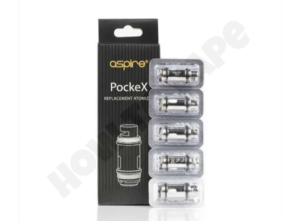Role of Transmission Oil additives in preventing Transmission Failure
Transmission systems are where raw power is converted into performance. They transmit power from the engine to the wheels, thus ensuring smooth movement and fluid control. Yet, they are one of the most ignored components of your vehicle until something goes wrong. A transmission failure can lead to costly repairs and a great deal of inconvenience. Fortunately, most transmission failures can be prevented. One of the best ways to keep your transmission tip-top is through transmission oil additives.
They give additional properties to the transmission fluid. The reason is that additives ensure the performance of the transmission fluid when it is in undesirable conditions. Such additives will offer protection so your car does not malfunction due to extreme damage. This is a major reason many mechanics suggest one should use such additives. Through this blog, you will learn what role additives play in stopping transmission failure.
Why Do Transmissions Fail?
The first part of the prevention of a problem is to know why transmissions fail. One of the biggest reasons it fails is heat. There is always pressure on the transmission when it travels in stop-and-go traffic or even more so when there are heavy towing loads. Transmission fluid, broken down by this excess heat over time, no longer performs adequately. One other big problem is friction. Internal parts and gears inside the transmission grind and rub against one another constantly. This can tear up components and cause them to malfunction or lose reliability. Then there is contamination. Dust, debris, and even broken-down fluid can produce sludge. This clogs the system, making it ineffective. Leaks draw away essential fluid from the system, leaving nothing to protect its inner workings.
How do Transmission Oil Additives Help?
Transmission oil additives are designed to combat the common causes of transmission failure. They improve the fluid’s properties, such as its ability to handle heat, reduce friction, and keep the system clean. Thus, additives can enhance your vehicle’s performance and prevent expensive breakdowns.
Managing Heat in Your Transmission
Heat is one of the most critical threats to transmission. Overheating fluid causes it to lose its lubrication properties. When parts rub together, friction can cause wear and tear that fails.
Heat control additives are essential for transmission additives. These enhance the heat stability of fluids without altering the basic properties and hinder the fluids from sticking together. It is particularly helpful and effective while driving in hot areas. Also, it avoids overheating and resulting heat damage under extreme loads during transmission.
Help Reduce Friction for a Silky Smooth Drive
Nothing damages the metal part as much as the heat generated by friction. Friction can be said to be the archenemy of machines; it is the only reason lubrication is necessary. However, as friction increases, even lubricants cannot avoid the damage. Transmission oil additives are a savior in reducing the damage caused by friction. These additives work as a protective shield for the oil molecules and ensure that the heat from friction cannot damage them.
Adding good additives to the transmission oils can enhance your car’s performance dramatically. Once the additives are added, you will start feeling the results, such as easier shifting of gears and improved performance.
Prevention of Contamination and Sludge
Contamination is the invisible enemy of your transmission. Dirt, debris, and degraded fluid all combine to form sludge, which clogs the system and reduces efficiency. Additives in transmission oil break down contaminants to keep the fluid clean. It also protects damaging deposits that leave the transmission silky smooth, with less frequent changes of fluid.
Stopping Leaks Before They Cause Damage
The most common issue is the leakage of transmission fluid, usually in older vehicles. Fluid leakage can also be caused by worn seals and gaskets, depriving the transmission of adequate lubrication. It may cause overheating, friction, and eventually failure.
Some additives are specifically designed to condition seals and prevent leaks. They work by softening and restoring worn seals, helping them maintain a tight fit. If you’ve noticed small leaks or want to avoid them in the future, using an additive is an effective solution.
Improving Performance in Cold Weather
In cold temperatures, the fluid thickens and becomes slow to move, making it unable to flow and provide adequate lubrication. It also causes hard shifts, delayed gear changes, and more strain on the system. The transmission oil additives help make the fluid flow better in cold temperatures. They raise the freezing points of the oils and make sure that at freezing temperatures, the oils will stay in a liquid state. In this manner, these additives enable your car’s transmission to operate smoothly for a long period.
Noise Reduction
A noisy or vibrating transmission is not only annoying, but it also indicates stress or damage. These issues make driving uncomfortable and suggest that your transmission may need attention. Most of the noises from the transmission are due to the friction between the metal parts. Additives can reduce friction by preventing metal-to-metal contact and smoothing the system’s operation. After using the right product, you’ll likely notice quieter performance and smoother gear shifts.
Extend the Life of Your Transmission
Your transmission is one of the most expensive components of your vehicle to repair or replace. Heat, friction, and contamination are some of the problems that your transmission oil additives help handle. Solving these problems is essential to maintaining the system’s health. Using these additives ensures fewer repairs, less downtime, and a longer life for your transmission.
A Mechanic’s Advice
Many mechanics believe that transmission oil additives work and do make a difference. They always recommend them to those who despise expensive repairs and want their vehicle to last long and perform well.
Depending on the transmission type used by your vehicle, you need only to select the best additive manufacturers. Some additives function in a certain way. Others reduce heat, stop leaks, and prevent oil freezing, while others designed for cold temperature zones prevent oil from freezing and eliminate the problem of cold starts.
Treatment of additives in transmission oil is only a small investment to save time and money in the future. Protecting your vehicle’s transmission makes driving easy and almost effortless. You will not have to worry about sudden transmission failures thanks to these additives.














Post Comment